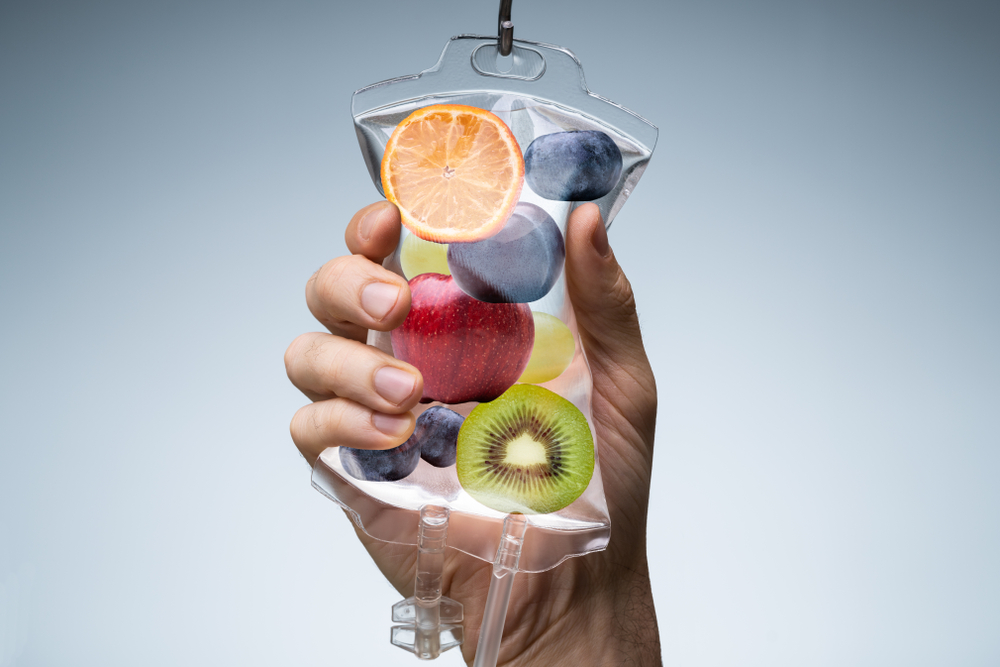The human organism cannot do without nutrients since they are essential for its growth and functioning. A nutrient is a substance provided by nutrition that provides the body with the energy and material intake it needs to ensure cellular maintenance and compensate for energy expenditure. What are the main nutrients and where to find them? This section will provide interesting information about nutrients and the essential nutritional benchmarks to provide the body with everything it needs.
Nutrients: a very large family
The main nutrients are present in food in the form of macromolecules. The digestive system then breaks them down so that they can be assimilated. Some nutrients act as energy carriers, others boost immunity or help to slow down ageing.
Note that 60% of a person's total intake is represented by water, which makes it the number one nutrient. Next comes macro and micro-nutrients. In fact, there is the family called "macronutrients" which includes carbohydrates, proteins, fats, as well as fibres and fatty acids. 98% of the diet is provided by this group.
There are also so-called "micronutrients", which include vitamins, minerals and trace elements. These play a vital role in the functioning of the body, even though they are consumed in minute quantities, i. e. about 2% of the diet.
Learn more about the storage of nutrients.
PROTEIN
The body needs protein to ensure cell construction and repair.
Animal proteins are found in meat, cheese, eggs, milk, and butter. Vegetable proteins are found in various vegetables such as pulses, pasta, wholemeal wheat and rice, soya, yeast and certain dried fruits such as hazelnuts, almonds, etc.
CARBOHYDRATES
As the main source of energy, carbohydrates are also essential for the body. Also known as carbohydrates, they are:
- in sugars:, fresh fruit, dried fruit, honey, industrial sugars from beet or cane. . .
FATS
Like carbohydrates, fats also provide the body with energy. They play a role in the structure of the body, i. e. the nervous system, the brain, . . . .
Lipids include all fats. As warming foods, they allow the transport of fat-soluble vitamins: A, D, E and K.
The main sources are:
- oleaginous fruits: almonds, hazelnuts, peanuts, walnuts, eggs,olives
-
The main sources are:
In the lipid family, a distinction must be made between saturated fatty acids, which are over-consumed since they are present in many industrial foods such as biscuits, frying oils, and unsaturated fatty acids such as linolenic fatty acid, alphalinolenic fatty acid.
Among the unsaturated fats, there are the so-called "essential" types, i. e. the polyunsaturated fatty acids (omega 3 and omega 6), meaning that they are only provided by the diet and must be found in the food, since the body is not capable of composing them itself.
Omega 3s are essential for the functioning of the brain and neurons, while omega 6s have anti-cholesterol effects which are necessary for the cardiovascular system.
MINERALS
Calcium, phosphorus, sulphur, sodium, . . . the family of mineral salts which are non-energy nutrients and necessary in modest quantities but important for the proper functioning of the organism and to remain in good health, especially for calcification.
It should be noted that 1g of salt provides 0. 4g of sodium. According to the recommendation of the National Nutrition and Health Programme (PNNS), the ideal intake is less than 8g per day. Calcium is an essential mineral for the teeth and skeleton. Children and adults, both men and women, need around 0. 5 g and pregnant or breastfeeding women need 1 g.
WATER
Two thirds of the body is made up of water. Water is the natural conduit for mineral salts and excretion products.
It is recommended to drink 2 litres of water per day, which is of course found in liquids but also in fruit and vegetables. Water is also essential for sports performance.
VITAMINS
Vitamins are micronutrients that are needed in very small quantities, but they are very important for the functioning of the cell metabolism.
In fact, vitamin requirements are in the order of a few milligrams per day, but deficiencies can occur as a result of various ailments.
Apart from rare exceptions, vitamins cannot be synthesised by the body. To prevent the risk of deficiencies, it is advisable to eat a varied and balanced diet.
MICRONUTRIENTS
Other micronutrients, trace elements have important roles in the body. They include copper, iron, manganese, zinc, cobalt, fluorine and also iodine, which is essential for the proper functioning of the thyroid gland. Iron is an essential component of the blood, specifically the red blood cells responsible for transporting oxygen.
A deficiency of one or more trace elements can lead to more or less serious functional disorders. Trace elements are required in the order of 5 to 20 mg per day and are obtained from the diet.
Foods rich in:
- zinc: seaweed, crabs, wholegrain cereals , egg yolk, pulses, poultry, fish, oysters, pumpkin seeds, mussels, . . .




